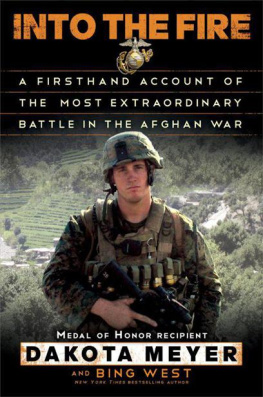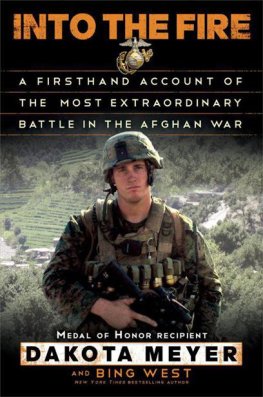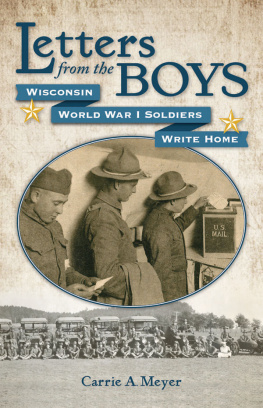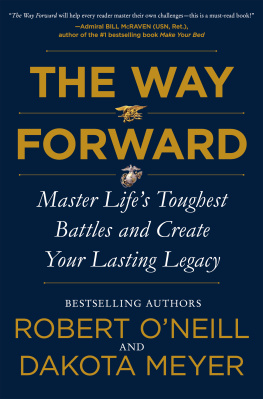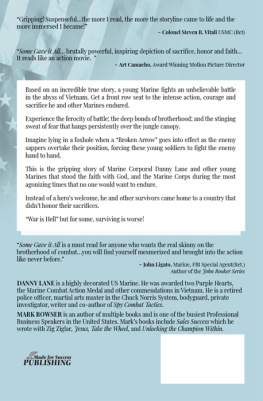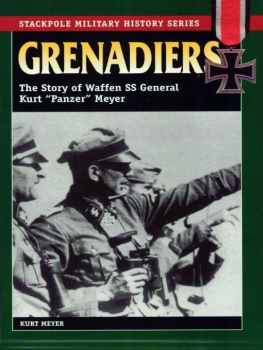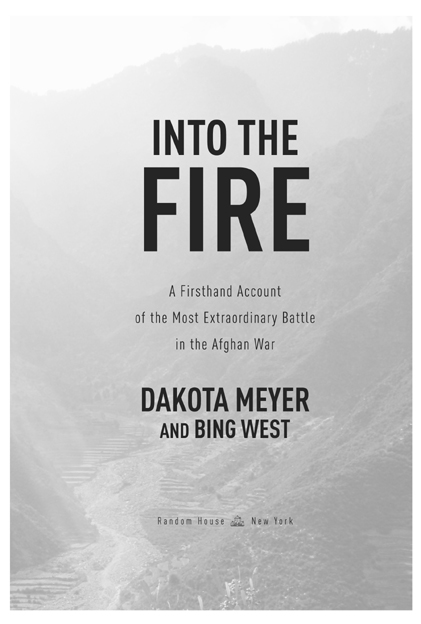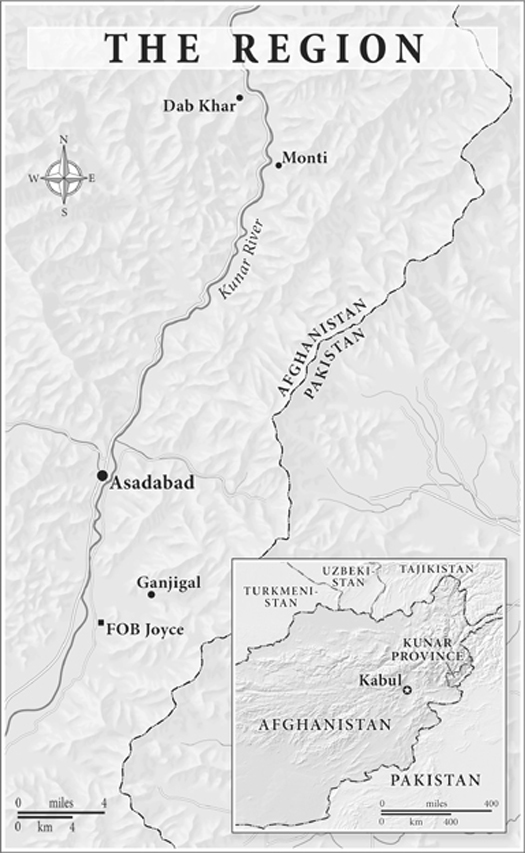Meyer Dakota - Into the fire : a first-hand account of the most extraordinary battle in the Afghan War
Here you can read online Meyer Dakota - Into the fire : a first-hand account of the most extraordinary battle in the Afghan War full text of the book (entire story) in english for free. Download pdf and epub, get meaning, cover and reviews about this ebook. City: New York, Afghanistan--Kunar (Province), year: 2013, publisher: Random House Trade Paperbacks, genre: Non-fiction. Description of the work, (preface) as well as reviews are available. Best literature library LitArk.com created for fans of good reading and offers a wide selection of genres:
Romance novel
Science fiction
Adventure
Detective
Science
History
Home and family
Prose
Art
Politics
Computer
Non-fiction
Religion
Business
Children
Humor
Choose a favorite category and find really read worthwhile books. Enjoy immersion in the world of imagination, feel the emotions of the characters or learn something new for yourself, make an fascinating discovery.

- Book:Into the fire : a first-hand account of the most extraordinary battle in the Afghan War
- Author:
- Publisher:Random House Trade Paperbacks
- Genre:
- Year:2013
- City:New York, Afghanistan--Kunar (Province)
- Rating:5 / 5
- Favourites:Add to favourites
- Your mark:
Into the fire : a first-hand account of the most extraordinary battle in the Afghan War: summary, description and annotation
We offer to read an annotation, description, summary or preface (depends on what the author of the book "Into the fire : a first-hand account of the most extraordinary battle in the Afghan War" wrote himself). If you haven't found the necessary information about the book — write in the comments, we will try to find it.
The story of what Dakota did . . . will be told for generations.President Barack Obama, from remarks given at Meyers Medal of Honor ceremony
In the fall of 2009, Taliban insurgents ambushed a patrol of Afghan soldiers and Marine advisors in a mountain village called Ganjigal. Firing from entrenched positions, the enemy was positioned to wipe out one hundred men who were pinned down and were repeatedly refused artillery support. Ordered to remain behind with the vehicles, twenty-one year-old Marine corporal Dakota Meyer disobeyed orders and attacked to rescue his comrades.
With a brave driver at the wheel, Meyer stood in the gun turret exposed to withering fire, rallying Afghan troops to follow. Over the course of the five hours, he charged into the valley time and again. Employing a variety of machine guns, rifles, grenade launchers, and even a rock, Meyer repeatedly repulsed enemy attackers, carried wounded Afghan soldiers to safety, and provided cover for dozens of others to escapesupreme acts of valor and determination. In the end, Meyer and four stalwart comradesan Army captain, an Afghan sergeant major, and two Marinescleared the battlefield and came to grips with a tragedy they knew could have been avoided. For his actions on that day, Meyer became the first living Marine in three decades to be awarded the Medal of Honor.
Into the Fire tells the full story of the chaotic battle of Ganjigal for the first time, in a compelling, human way that reveals it as a microcosm of our recent wars. Meyer takes us from his upbringing on a farm in Kentucky, through his Marine and sniper training, onto the battlefield, and into the vexed aftermath of his harrowing exploits in a battle that has become the stuff of legend.
Investigations ensued, even as he was pitched back into battle alongside U.S. Army soldiers who embraced him as a fellow grunt. When it was over, he returned to the States to confront living with the loss of his closest friends. This is a tale of American values and upbringing, of stunning heroism, and of adjusting to loss and to civilian life.
We see it all through Meyers eyes, bullet by bullet, with raw honesty in telling of both the errors that resulted in tragedy and the resolve of American soldiers, U.S.Marines, and Afghan soldiers whod been abandoned and faced certain death.
Meticulously researched and thrillingly told, with nonstop pace and vivid detail, Into the Fire is the true story of a modern American hero.
Praise for *Into the Fire
A story of men at their best and at their worst . . . leaves you gaping in admiration at Medal of Honor winner Dakota Meyers courage.National Review
Meyers dazzling bravery wasnt momentary or impulsive but deliberate and sustained.The Wall Street Journal
[A] cathartic, heartfelt account . . . Combat memoirs dont get any more personal.Kirkus Reviews
A great contribution to the discussion of an agonizingly complex subject.The Virginian-Pilot
Black Hawk Down meets Lone Survivor.Library Journal*
From the Hardcover edition.
ReviewA story of men at their best and at their worst . . . leaves you gaping in admiration at Medal of Honor winner Dakota Meyers courage.National Review
Meyers dazzling bravery wasnt momentary or impulsive but deliberate and sustained.*The Wall Street Journal
*
[A] cathartic, heartfelt account . . . Combat memoirs dont get any more personal.Kirkus Reviews
A great contribution to the discussion of an agonizingly complex subject.*The Virginian-Pilot
Black Hawk Down meets Lone Survivor.*Library Journal
Into the Fire is a deeply compelling tale of valor and duty. Dakota Meyer will not identify as a hero, but he will, I think, accept the title warrior. Dakotas storytelling is precise and, for a Medal of Honor recipient, touchingly humble. With deft prose he drops us smack in the middle of one of the most heinous small unit firefights of the current wars. His insights into military tactics and politics in a war zone are sharp and uncompromising and work as a primer on infantry war fighting for the uninitiated. Dakota was a magnificent marine and he is now an equally magnificent chronicler of warfare and the small group of people who do todays fighting for America.Anthony Swofford, author of *Jarhead*
The story of what Dakota did . . . will be told for generations.President Barack Obama, from remarks given at Meyers Medal of Honor ceremony
Sergeant Meyer embodies all that is good about our nations Corps of Marines. . . . [His] heroic actions . . . will forever be etched in our Corps rich legacy of courage and valor.General James F. Amos, Commandant of the Marine Corps
[Bing] Wests greatest strengths are his exceptional personal courage and his experienced perception of combat.*The Washington Post
West [is] the grunts Homer.Los Angeles Times Book Review*
From the Hardcover edition.
About the AuthorDakota Meyer was born and raised in Columbia, Kentucky, and enlisted in the United States Marine Corps in 2006. A school-trained sniper and highly skilled infantryman, Corporal Meyer deployed to Iraq in 2007 and to Afghanistan in 2009. In 2011, he was awarded the Congressional Medal of Honor for his unyielding courage in the battle of Ganjigal. He now competes at charity events in skeet and rifle competitions. He also speaks frequently at schools and veterans events to raise awareness of our military and remains dedicated to the causes of our veterans. For the families of fallen troops, he has raised over one million dollars.
Bing West, a Marine combat veteran, served as an assistant secretary of defense in the Reagan administration. He has been on hundreds of patrols in Vietnam, Iraq, and Afghanistan. A nationally acclaimed war correspondent, he is the author of The Village; No True Glory: A Frontline Account of the Battle for Fallujah; The Strongest Tribe: War, Politics, and the Endgame in Iraq; and The Wrong War: Grit, Strategy, and the Way Out of Afghanistan. A member of the Council on Foreign Relations, West has received the Marine Corps Heritage Foundation award, the Colby Award for military nonfiction, the Veterans of Foreign Wars News Media Award, and the Marine Corps University Foundations Russell Leadership Award. He lives with his wife, Betsy, in Newport, Rhode Island.
Meyer Dakota: author's other books
Who wrote Into the fire : a first-hand account of the most extraordinary battle in the Afghan War? Find out the surname, the name of the author of the book and a list of all author's works by series.

